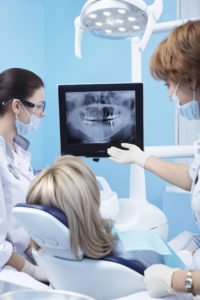IV sedation for dental work has been a game changer for many children and adults. Promoting a positive experience. Reducing anxiety and fear, allowing the patient to sit comfortably while the dentist performs the treatments without interruptions.
Many people have never heard of a Certified Registered Nurse Anesthetist (CRNA), but since the 1800’s CRNAs have been administering anesthesia care to patients.
What is a CRNA? Barry University explains:
 A nurse anesthetist is a specialty-trained registered nurse who administers anesthesia to patients who are undergoing surgeries or special procedures.
A nurse anesthetist is a specialty-trained registered nurse who administers anesthesia to patients who are undergoing surgeries or special procedures.
Nurse anesthetists have a unique approach to patient care, grounded in a nursing perspective. The job isn’t just about pharmacology and physiology, but caring for the human spirit while patients receive an anesthetic.
Research shows that Certified Registered Nurse Anesthetists (CRNAs) are the most cost-effective anesthesia providers with an exceptional safety record. In today’s changing healthcare environment, patients want healthcare delivered with personal care, at a lower cost, with a high degree of confidence. CRNAs deliver all of these.
Do you really need a CRNA to administer anesthesia? Can’t the dentist just do it?
While some dentists are known to perform IV sedation and the dental procedure simultaneously, this has proven not to be the safest application.
Having a CRNA administer the sedation allows the dentist to focus solely on the dental procedure. While the individual attention you receive from a certified nurse anesthetist will allow them to vigilantly monitor the patient’s vital signs and regulates the anesthetic.
J.P. Abenstein, former president of the American Society of Anesthesiologists told the Hartford Courant, “Ask how your vital signs will be monitored while you’re sedated and who will do the monitoring. In rare cases, sedative drugs cause people to stop breathing, and you want to be sure that someone is monitoring your vital signs at all times and that there’s an emergency plan in place in case something goes wrong. Ideally, the office should have a defibrillator and everyone on the medical team should have training in advanced cardiac life support.
If you think you or someone you love may benefit from sedation dentistry, we recommend you contact our specialist at Blue Sky Solutions to discuss your options and to make an appointment. We partner with dentist across New Hampshire to bring hospital level sedation to your office. Our highest priority is reducing anxiety and ensuring safe dental care.


